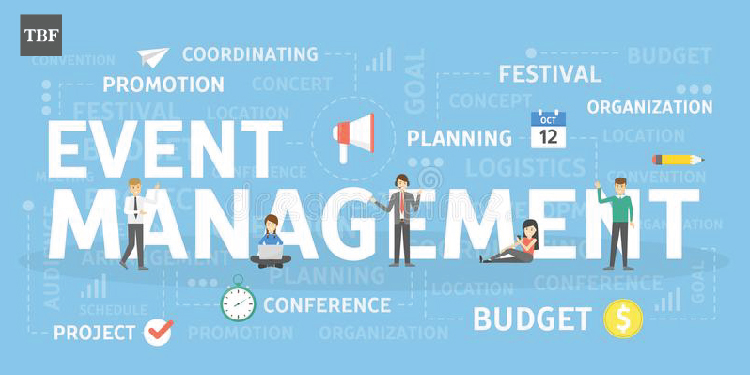A Deep Study Just How Event Management Works to Develop Remarkable Experiences
Event management is an intricate discipline that combines different elements to craft remarkable experiences. It needs a clear understanding of the event's objective and target market. Organizers must browse budgeting, logistics, and advertising and marketing to guarantee a seamless execution. Each part plays an important function in accomplishing the preferred effect. Nonetheless, the trip does not end with the event itself. There are insights to discover that can shape future endeavors.
The Basics of Event Management
Efficient event management incorporates a variety of necessary concepts that assist the planning and execution of successful occasions. At its core, it entails understanding the event's objective, audience, and desired outcomes. Recognizing the target market is critical, as it informs decisions related to web content, advertising, and logistics.
Budgeting is one more fundamental aspect, ensuring that resources are allocated effectively while meeting the event's purposes. This consists of planning for unforeseen expenses that may develop.
Time management plays an important duty, as event managers should develop a detailed timeline to work with different tasks and landmarks.
Additionally, reliable interaction among stakeholders, vendors, and staff member is necessary to guarantee positioning and prevent misconceptions.
Lastly, risk management must be considered, with backup plans in area to resolve prospective challenges, thus boosting the overall experience for attendees and guaranteeing a seamless implementation of the event. (charlotte event companies)

Key Functions in Event Preparation
In event preparation, understanding crucial duties is necessary for effective execution. The event planner is accountable for overseeing logistics and making certain all aspects straighten with the vision. Furthermore, effective vendor management is important for preserving high quality and fostering solid partnerships throughout the planning procedure.
Event Organizer Duties
An event planner coordinates the complex components of event preparation, making sure smooth execution from fertilization to final thought. They are liable for conceiving the event style, setting budget plans, and developing timelines to maintain the project on track. Coordination with stakeholders, including clients, venue managers, and volunteers, is important to align expectations and facilitate communication. The planner additionally manages logistics, such as event catering, transportation, and modern technology requires, making sure all parts operate harmoniously. They perform site brows through, take care of timetables, and troubleshoot problems that may emerge during the event. Post-event, the organizer evaluates the event's success, collecting comments and assessing end results to notify future projects. This diverse function needs solid business skills, interest to detail, and reliable social communication.
Supplier Management Basics
Steering through the landscape of vendor management is essential for successful event preparation. Reliable vendor management includes recognizing, selecting, and coordinating suppliers who supply essential services, such as wedding catering, audiovisual support, and design. Event coordinators must maintain strong communication with suppliers to ensure that all elements line up with the event's vision. Key roles include the vendor manager, who manages agreements and arrangements, and the logistics coordinator, accountable for on-site arrangement and execution. It's critical to develop clear assumptions and timelines, fostering a joint environment that boosts the total experience. By focusing on these elements, event planners can browse prospective obstacles, making sure that every information contributes to a smooth and unforgettable event.
Crafting a Vision: Principle Advancement

Once a vision is developed, it ends up being vital to translate it right into workable parts. This consists of defining the environment, choosing ideal locations, and identifying the event's design. Collaborating with stakeholders, including enrollers and partners, even more improves the principle, making certain that all events share an unified understanding of the event's function. Eventually, a strong vision not only improves attendee engagement but likewise establishes the phase for remarkable experiences that reverberate long after the event ends.
Budgeting and Source Appropriation
With a clear vision in position, the next action in event management entails careful budgeting and source appropriation. This essential stage warranties that all required components are funded and aligned with the event's goals. Event supervisors start by estimating expenses associated with location choice, catering, her response entertainment, and marketing. They create an in-depth budget that describes each category, permitting for transparency and responsibility.
Resource allocation extends beyond financial resources; it additionally incorporates human sources. Determining group duties, responsibilities, and timelines is important to guarantee performance. Event managers must additionally take into consideration contingencies for unexpected costs or changes in scope, developing a buffer within the budget.
Additionally, focusing on spending on components that improve visitor experiences is important. By strategically designating resources, event supervisors maximize effect while maintaining monetary control. This self-displined strategy not only promotes effective events yet likewise develops trustworthiness and trust fund with stakeholders and participants.
Logistics: The Backbone of Event Execution
While budgeting prepares for an event, logistics function as its foundation, guaranteeing that every facet is performed efficiently and successfully. charlotte event companies. This includes a vast array of tasks, consisting of venue selection, transportation plans, and equipment purchase. Efficient logistics management requires precise planning and sychronisation to ensure that all components straighten with the event's timeline and objectives
Key components of logistics consist of supply management, where supplies and products are tracked to protect against scarcities, and staffing, which entails recruiting and training workers to take care of numerous tasks. Interaction is also my company crucial, as it helps with partnership among vendors, sponsors, and the event group.

Marketing and Promo Techniques
Efficient marketing and promotion approaches are important for making best use of presence and engagement at an event, as they create passion and excitement among possible individuals. Event managers use a mix of traditional and electronic advertising techniques to reach their target market. Social media platforms, e-mail campaigns, and targeted advertisements are frequently utilized to produce buzz and foster neighborhood interaction. Partnerships with influencers or industry leaders can enhance trustworthiness, while involving content such as videos and reviews can reverberate with prospective participants.
Additionally, leveraging event-specific hashtags and developing shareable graphics encourages organic promo among guests. Early bird ticket deals and exclusive promotions can incentivize enrollment, furthermore increasing interest. In addition, a properly designed web site that provides easy navigation and clear info concerning the event can improve the user experience. By carrying out these marketing and promotion approaches, event managers can ensure greater presence and eventually create an unforgettable experience for all participants.

Measuring Success: Responses and Examination
Success in event management hinges on robust responses and analysis devices. These procedures are crucial for determining the effectiveness of an event and identifying areas for enhancement. By gathering input from attendees, coordinators can examine fulfillment levels, comprehend choices, and gauge general influence. Studies and meetings work as valuable tools for accumulating measurable and qualitative find out here data, enabling thorough analysis.
In addition, assessing vital performance indicators (KPIs) such as attendance prices, interaction levels, and return on investment (ROI) offers a clearer picture of event success. Post-event debriefing sessions with the planning group also contribute understandings, cultivating a culture of constant improvement.
Eventually, a methodical method to responses and assessment not just improves future events yet also enhances connections with stakeholders. By executing these techniques, event managers can produce remarkable experiences that reverberate with individuals and drive recurring engagement.
Regularly Asked Inquiries
Exactly How Do Event Supervisors Deal With Unexpected Difficulties During an Event?
Event managers deal with unforeseen challenges by continuing to be calm, evaluating the circumstance, and applying backup strategies - charlotte event companies. They communicate effectively with their team, adapt rapidly, and focus on services to assure the event continues efficiently and successfully
What Innovation Devices Are Necessary for Modern Event Management?
Crucial modern technology devices for modern-day event management consist of event enrollment software application, task management applications, participant interaction platforms, and analytics devices. These sources enhance processes, enhance interaction, and improve overall event experiences for organizers and individuals alike.
How Do Social Distinctions Influence Event Preparation and Execution?
Cultural distinctions significantly affect event planning and implementation. They influence themes, personalizeds, communication styles, and assumptions, demanding customized approaches to ensure inclusivity and regard, ultimately shaping the general experience and success of the event.
What Are the Honest Factors To Consider in Event Management?
Moral considerations in event management encompass openness, sustainability, cultural level of sensitivity, and inclusivity. Coordinators have to prioritize justness, regard diverse target markets, decrease environmental influence, and guarantee ease of access to create liable and memorable experiences for all individuals.
Exactly How Can Sustainability Be Integrated Into Event Planning?
Sustainability can be integrated right into event planning by utilizing environmentally friendly materials, lessening waste, sourcing regional suppliers, implementing carbon offset programs, and promoting digital remedies to minimize paper usage, therefore enhancing ecological consciousness within the event's framework.